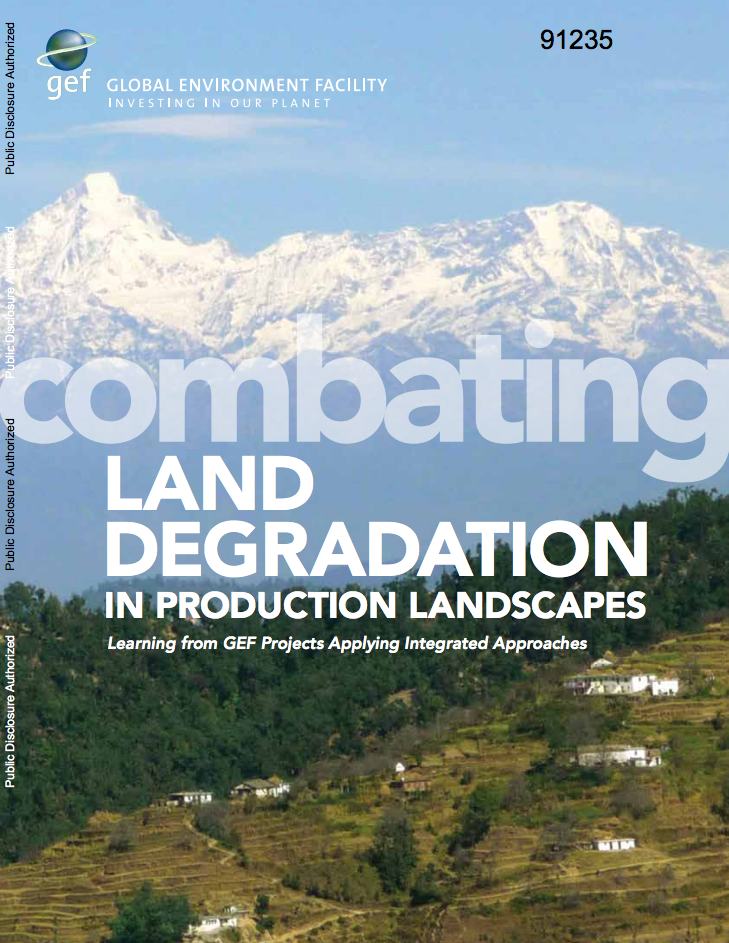Combating Land Degradation in Production Landscapes : Learning from GEF Projects Applying Integrated Approaches
During the Fifth Replenishment Phase of
the Global Environment Facility (GEF-5), portfolio
monitoring and learning review were introduced as key
components of knowledge management in the GEF Secretariat.
These strategies were intended to address the need to
generate knowledge on innovative practices, experiences, and
lessons from projects financed by the GEF. In that regard,
the Land Degradation focal area strategy for GEF-5


